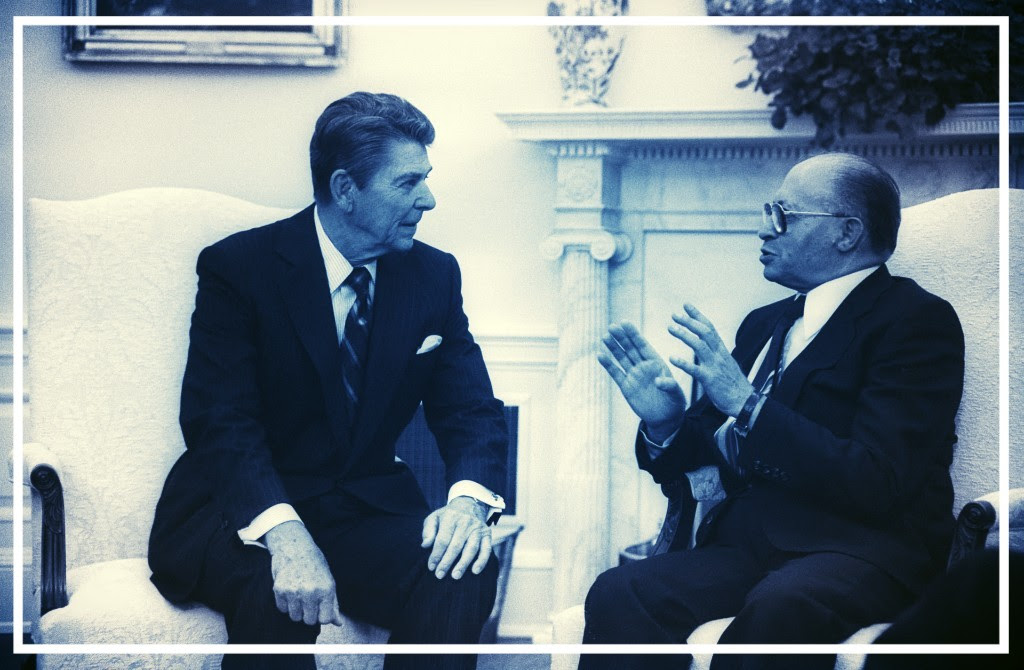
When Ronald Reagan cowed the Soviet Union into winding down the Cold War — his successor, George H.W. Bush, formally ended it — a key component of his animus toward Moscow was the treatment of its Jews.
“He was someone who was truly committed to overturning the Communist system and gaining freedom for all people, but he had a particularly soft spot in his heart for Soviet Jewry,” Mark Levin, a longtime advocate for Soviet and Eurasian Jewry, told JTA in 2004 when Reagan died.
When Theodore Mann, the chairman of the National Conference on Soviet Jewry, returned from a visit to the Soviet Union in 1981, the first call he received in his law office was from Reagan.
"He wanted to know all about the trip," Mann said in 2004.
On Reagan's watch, in 1986, the Soviets released Natan Sharansky, the prisoner of conscience who spent nine years in Soviet prisons. Reagan's ties to the pro-Israel community extended back to his Hollywood days as an actor and union leader. As California governor in 1967, he headlined a pro-Israel rally at the Hollywood Bowl.
Reagan won over the wary with his avuncular affect.
"This man cared," Shoshana Cardin, who led a number of Jewish organizations, once said of Reagan, but his persuasive powers could also be a sharp-edged weapon.
In 1981, the American Israel Public Affairs Committee lobbied hard against a proposed sale of AWACS spy plans to Saudi Arabia. Reagan met with Jewish senators one on one and threatened to unleash dual-loyalty charges if they voted against him.
“It is not the business of other nations to make American foreign policy," the president said. The Reagan administration in 1981 joined a U.N. Security Council resolution condemning Israel’s bombing of Iraq’s nuclear reactor and joined.
After Israel's Christian allies in Lebanon massacred Palestinians in 1982, Reagan sent U.S. troops into Lebanon — against advice from Israel.
He and Israeli Prime Minister Menachem Begin exchanged barbs, and Begin famously chided Reagan for treating Israel like a "banana republic." Reagan secretly planned to surprise Begin with a peace plan that would have pulled Israel out of the West Bank and Gaza Strip. Under pressure from Reagan, Israel allowed PLO leader Yasser Arafat to safely leave Europe.
On Reagan's watch, authorities arrested Jonathan Pollard, a civilian Navy analyst who was a spy for Israel, and Israeli figures were caught up in his administration's efforts to trade arms to Iran for the release of U.S. hostages in Beirut, and then funnel the proceeds to right-wing militias in Central America. In his final months in office, a lame duck beyond political pressures, Reagan established ties with the Palestine Liberation Organization.
To the chagrin of even his closest allies, Reagan went ahead with plans in 1985 to visit Germany's Bitburg cemetery, where 40 members of the Nazi Waffen SS were buried.
"It is precisely because you have so impressed us in the past with your deep understanding of the need to keep the meaning and memory of the Holocaust alive that we have been so keenly disturbed by your plans," Elie Wiesel, the Holocaust memoirist,said in a telegram to Reagan.

